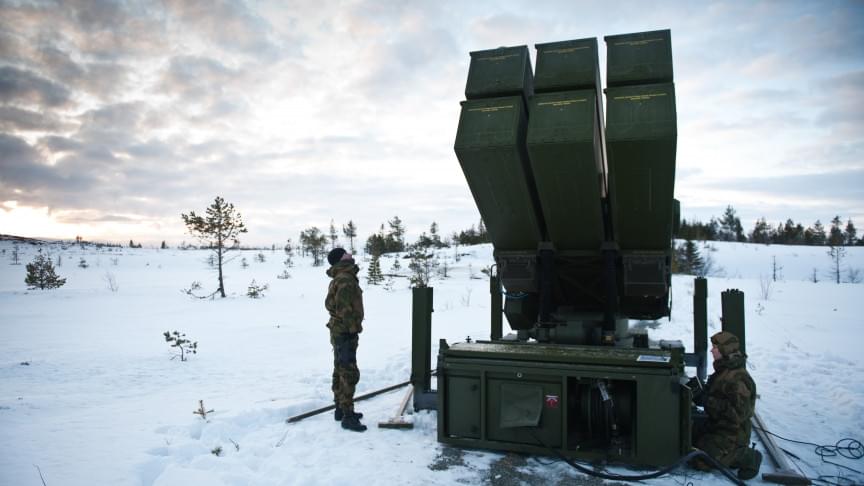
Category: military – Page 100


China Rejects NASA’s Claim That It Plans to ‘Take Over’ the Moon
NASA director Bill Nelson warned that China’s space program was primarily established to be used as an extension of its military rather than for peaceful or scientific purposes.
By Trevor Filseth L
China’s Foreign Ministry issued a condemnation on Monday of reports from the United States that Beijing intends to pursue exclusive control over the Moon in the future, accusing administrators within the U.S. National Aeronautics and Space Administration (NASA) of ignoring facts and speaking “irresponsibly” about China’s space program.

Russian Scientists Synthesize a New Ultra-Hard Material
Russian scientists have synthesized a new ultra-hard material containing scandium and carbon. It consists of polymerized fullerene molecules with scandium and carbon atoms inside. The work paves the way for future studies of fullerene-based ultra-hard materials, making them a potential candidate for use in photovoltaic and optical devices, elements of nanoelectronics and optoelectronics, biomedical engineering as high-performance contrast agents, etc. The research study was published in the journal Carbon.
The discovery of new, all-carbon molecules known as fullerenes almost forty years ago was a revolutionary breakthrough that paved the way for fullerene nanotechnology. Fullerenes have a spherical shape made of pentagons and hexagons that resembles a soccer ball, and a cavity within the carbon frame of fullerene molecules can accommodate a variety of atoms.

Space Force Launches New Intelligence Unit as Congress Voices Concerns over Growth
The Space Force has assumed command of a new unit that will be focused on keeping an eye out for foreign threats in space, but it comes as Congress is warning the small service branch that it has to prepare to slow its growth.
Delta 18 and the brand-new National Space Intelligence Center were officially commissioned late last month at Wright-Patterson Air Force Base in Dayton, Ohio. It will be staffed by nearly 350 civilian and military personnel.
Delta 18’s mission is to “deliver critical intelligence on threat systems, foreign intentions, and activities in the space domain to support national leaders, allies, partners and joint war fighters,” according to a press release.


A liquefied gas electrolyte to create temperature-resilient lithium-metal batteries
Lithium Ion-based batteries are among the most effective and widely used battery technologies. However, the batteries’ electrolytes mainly contain organic carbonated solvents, which are considered highly flammable with a narrow temperature window. To ensure that they don’t catch fire while operating at extreme temperatures, engineers must design safer electrolytes that are not only non-flammable, but also able to operate at a wide temperature range.
Researchers in the University of California San Diego’s Shirley Meng group and at the Army Research Laboratory have recently developed new liquefied gas electrolytes that could be used to produce lithium-metal batteries that can operate safely from-60 to 55 o C. These electrolytes have a unique structure, outlined in a paper published in Nature Energy, which make them capable of extinguishing fire.
“The liquefied gas electrolyte (LGE) was firstly conceptualized by our research group in a paper published in Science in 2017 and has been developed over five years,” Yijie Yin, one of the researchers who are working in this field from Prof. Meng’s lab, told TechXplore. “It consists of a variety of fluorocarbon gases, that when put under pressure, liquefies to form a chemically stable, low-freezing point, low-cost electrolyte.”



US will provide Ukraine with advanced NASAMS in a new $820m military aid
The U.S. announced on Friday a new $820 million Ukraine military aid that includes the National Advanced Surface-to-Air Missile System (NASAMS). The Pentagon contract denotes the start of a contracting process for a significant amount of equipment, including four more counter-artillery radars and up to 150,000 rounds of 155mm artillery ammunition, through the Ukraine Security Assistance Initiative.
NASAMS can be quite an unpleasant adversary for tactical aircraft (possibly with the exception of the Su-57), helicopters, drones, subsonic cruise missiles (Caliber, Kh-101, 9M728). Against high-speed targets (from Oniks to Kinzhal) the benefit of this system seems doubtful.
5/— Dmitry Stefanovich (@KomissarWhipla) July 1, 2022
Laser Pistols & Lightsabers
The first 1,000 people to use the link will get a free trial of Skillshare Premium Membership: https://skl.sh/isaacarthur05216
Science fiction amazes us with futuristic technology and weapons, but many like the laser pistol, raygun, or lightsaber seem high-tech versions of old tech. Are such weapons possible and if so, could they have a role in future warfare?
Visit our Website: http://www.isaacarthur.net.
Support us on Patreon: https://www.patreon.com/IsaacArthur.
Facebook Group: https://www.facebook.com/groups/1583992725237264/
Reddit: https://www.reddit.com/r/IsaacArthur/
Twitter: https://twitter.com/Isaac_A_Arthur on Twitter and RT our future content.
SFIA Discord Server: https://discord.gg/53GAShE
Listen or Download the audio of this episode from Soundcloud:
Episode’s Audio-only version: https://soundcloud.com/isaac-arthur-148927746/laser-pistols-lightsabers.
Episode’s Narration-only version: https://soundcloud.com/isaac-arthur-148927746/laser-pistols-…ation-only.
Credits:
Laser Pistols & Lightsabers.
Science & Futurism with Isaac Arthur.
Episode 290a; May 16, 2021
Written, Produced & Narrated by Isaac Arthur.
Script Editors:
Andy Nelson.
Jason Burbank.
Jerry Guern https://www.youtube.com/watch?v=mxgArWbEhZg.
Matthew Campbell.
Graphics by: